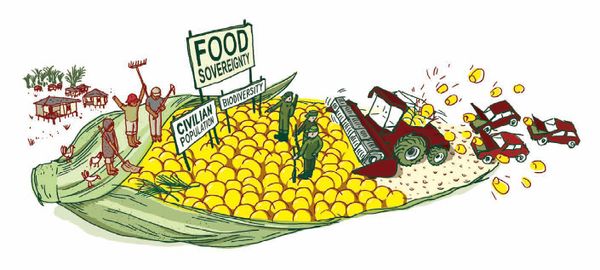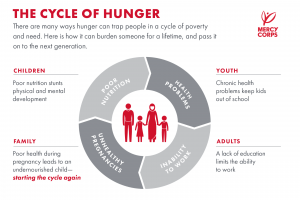Before I took Political Science 385, the relationship between the food system and racism was not an explicit connection I made. I was in a bubble of ignorance, clouded by my own privilege of being considered white passing, socioeconomically privileged, and cis-male. I asked myself, “how could the [United States] food system possibly be racist? – it’s food, right? It was not until I stepped back, flipped through a couple of history books, and put myself in a different vantage point that I connected the dots: the United States is built on oppression and systemic racism, the food system is just one of the many layers that it lurks.
Systemic racism can be traced back to the very creation of the United States. The brutal colonization of the indigenous population for their land, forced slave labor and unjust laws stripping people of color from land ownership are just the beginning of injustice that minorities have faced in our food system. The very backbone of our modern-day food system has been created by the very populations that are left behind.
Not only has the entire system been built on oppression, the very laws that are meant to protect people from harm has had a long history of dismantling Black and Brown empowerment. Before Jim Crow laws were enacted in the United States, African American’s owned 13 million acres of land in 1902, by the end of 1997 years of Jim Crow, they only owned 2 million acres. White land owners now pass on their externalities to people of color, while they reap the benefits of their new found land. Many working longer hours for lower wages than their white counter parts.
There is so much more happening behind the scenes than the average consumer might think. Buying something as simple as an avocado, a banana, or chocolate, it is easy to forget about the hundreds of miles, hours, and workers it took to get where it is now. The food system is not a farm to table concept like people may think, it is much more complex and inner connected.
One thing that I will always hold close to me from this class is that you cannot look at one part of the system and generalize about the whole. The history of oppression in agriculture cannot survive on its own, it is interdependent on a long and brutal history of colonization, institutionally racist laws, biased social norms, and labor.
The food system is not failing people, it is working how it was intended.
Work Cited:
New Research Explores the Ongoing Impact of Racism on the U.S. Farming Landscape
https://www.bbc.com/news/av/world-africa-15686731/cocoa-farms-in-ivory-coast-still-using-child-labour
Photos: https://communityfoodfunders.org/wp/wp-content/uploads/2018/07/History-of-Racism-and-Resistance-in-the-Food-System-Visual-Timeline.pdf



















